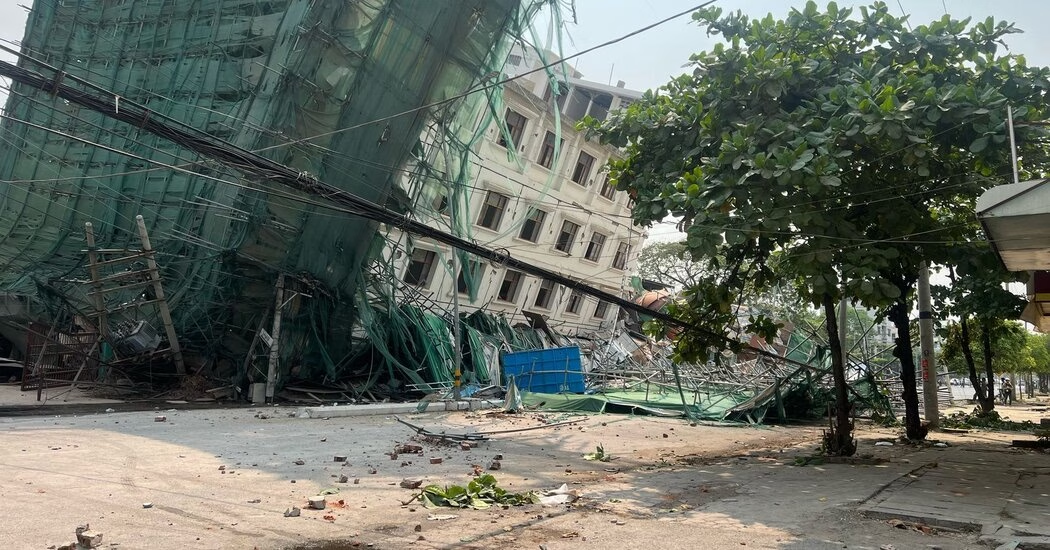Myanmar’s long history of isolation and internal instability is expected to hinder the global humanitarian aid response to the earthquake that occurred on Friday. This is despite the country’s military-dominated government issuing a rare plea for outside assistance.
“We need and want the international community to provide humanitarian aid,” stated the military spokesman, Gen. Zaw Min Tun. “We will cooperate with them to ensure the best care for the victims.”
In 2021, Myanmar was cut off by the United States and many Western nations after a military coup and a subsequent brutal crackdown. The country had already been subject to various sanctions for decades, most recently over organized violence against the Rohingya minority. Western sanctions do allow for humanitarian aid, and the United Nations has announced plans to mobilize support for those affected. However, logistical challenges persist due to the country’s history of civil war and internal strife.
Michael Martin, a nonresident fellow at the Center for Strategic and International Studies, believes that ensuring the security and safety of international aid workers is a significant concern. There is also a risk that the military could hinder the delivery of aid, potentially by redirecting it to areas under their control or preventing relief workers from reaching opposition-held regions.
Historically, aid organizations have struggled to deliver assistance in a politically neutral manner. The military may attempt to direct more assistance to areas under their control rather than opposition areas. This raises concerns about the effectiveness and impartiality of the aid provided.
A similar situation occurred two years ago when a 7.8 magnitude earthquake struck Syria’s northwest region. Little international aid reached the region due to restrictions imposed by the repressive regime of Bashar al-Assad. Some survivors had to dig through rubble by hand, as the government limited aid distribution to opposition-held areas.
In Myanmar, the military has been in power for most of the time since 1962, with limited periods of liberalization. During these periods, the armed forces have remained a significant political force, often restricting contacts with the outside world.
Logistical and financial challenges are also expected to complicate the delivery of humanitarian aid. Transferring funds to Myanmar, especially through sanctioned banks or other channels, poses difficulties. Additionally, raising necessary funds may be challenging due to Myanmar’s isolation from Western countries, limiting the availability of international donors.
Stefan Dercon, an economics professor at the University of Oxford, emphasizes that humanitarian aid delivery requires cooperation from many individuals and effective logistics. Given Myanmar’s history and current circumstances, it is unclear how much support the U.S. government will provide, given the Trump administration’s hostility to foreign aid programs and cuts to the U.S. Agency for International Development.
Source: https://www.nytimes.com/live/2025/03/29/world/earthquake-myanmar-thailand





